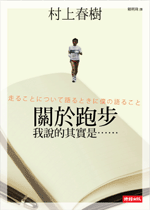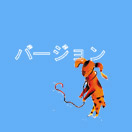|
村上國際村
What
Haruki Murakami talks about
Heidi
Benson, Chronicle Staff Writer/Sunday, October 26, 2008
 Before
he decided to became a writer, award-winning Japanese author
Haruki Murakami, 59, owned a jazz club in Tokyo. He still
collects American jazz on vinyl, so when he came to town recently
- as part of the 50th anniversary celebration of UC Berkeley's
Center for Japanese Studies, which included a symposium on
Murakami's work and an evening with the author at Zellerbach
Hall, co-sponsored by Cal Performances - he and his wife,
Yoko, spent a few hours prowling record stores on Telegraph
Avenue. We caught up with him afterward for a brief chat in
the new East Asian Library on campus. Before
he decided to became a writer, award-winning Japanese author
Haruki Murakami, 59, owned a jazz club in Tokyo. He still
collects American jazz on vinyl, so when he came to town recently
- as part of the 50th anniversary celebration of UC Berkeley's
Center for Japanese Studies, which included a symposium on
Murakami's work and an evening with the author at Zellerbach
Hall, co-sponsored by Cal Performances - he and his wife,
Yoko, spent a few hours prowling record stores on Telegraph
Avenue. We caught up with him afterward for a brief chat in
the new East Asian Library on campus.
Q: Your first memoir, "What I Talk About When
I Talk About Running," was recently published by Knopf. What
compelled you to write a memoir ?
A: I just
wanted to write something about running, but I realized that
to write about my running is to write about my writing. It's
a parallel thing in me.
Q: Readers are very passionate about your
work. Why do you think fiction matters to people so much?
A: That's
a big question. I know how fiction matters to me, because
if I want to express myself, I have to make up a story. Some
people call it imagination. To me, it's not imagination. It's
just a way of watching. Sometimes it's not easy. You have
to dream intentionally. Most people dream a dream when they
are asleep. But to be a writer, you have to dream while you
are awake, intentionally. So I get up early in the morning,
4 o'clock, and I sit at my desk and what I do is just dream.
After three or four hours, that's enough. In the afternoon,
I run. The next day, the dream will continue. You cannot do
that while you are asleep. When the dream stops, it stops
forever. You cannot continue to dream that same dream. But
if you are a writer, you can do that. That is a great thing,
to keep on dreaming while you are awake.
Q: Were both your parents teachers of Japanese
literature?
A: Yes. My
mother quit after I was born, but she was a teacher. My father
died this August. He was 90 years old. There was a funeral
and 100 students came. They said he was a very good teacher.
But I don't know anything at all about his teaching, because
I was not his student.
Q: As a writer, what did you want to do differently
from the Japanese literature you were exposed to?
A: I didn't
read so much Japanese literature. Because my father was a
teacher of Japanese literature, I just wanted to do something
else. So I read Kafka and Dostoyevsky and Tolstoy, and I loved
it very much. Dostoyevsky is still my hero.
Q: It has been said that history has loomed
larger in your recent writing. Do you agree?
A: Yes. I
think history is collective memories. In writing, I'm using
my own memory and I'm using my collective memory. I like to
read books on history and I'm interested in the Second World
War. I was born in 1949, after the war ended, but I feel like
I'm kind of responsible for that war. I don't know why. Many
people say, "I was born after the war, so I'm not responsible
at all - I don't know about the comfort women or the Nanking
massacre."
I want to do something as a fiction writer about those things,
those atrocities. We have to be responsible for our memories.
My stories are not written in realistic style. But you have
to see reality. That is your duty, that is your obligation.
Q: Do you follow American politics closely?
A: Yes. The
American political situation is very connected to other countries.
Sometimes I wonder what the world would be like now if 9/11
had not happened.
Q: What do you imagine a world without 9/11
would be like?
A: Maybe
Al Gore would have been president. There would be no Iraqi
war, no Afghanistan invasion. We are living in the future
now, in a kind of science fiction - 9/11 itself was kind of
unreal to me, those images of planes diving into the buildings.
I felt like I stepped into the wrong world.
I have a feeling that if people like my stories,
they are feeling the same way. Many people are feeling trapped.
That is what I'm doing in my writing every day. I'm stepping
into a dark room. There is a secret door in my mind. I step
inside and I don't know what I'm going to find. Darkness.
I describe what I see and I return to this world. My job is
to just see and to write it down. I'm just an observer of
what's happening.
* 原文網址:
http://www.sfgate.com/cgi-bin/article.cgi?f=/c/a/2008/10/24/RVL713GP8T.DTL
|




